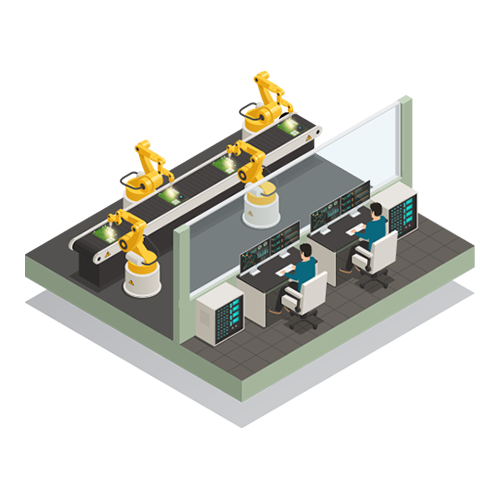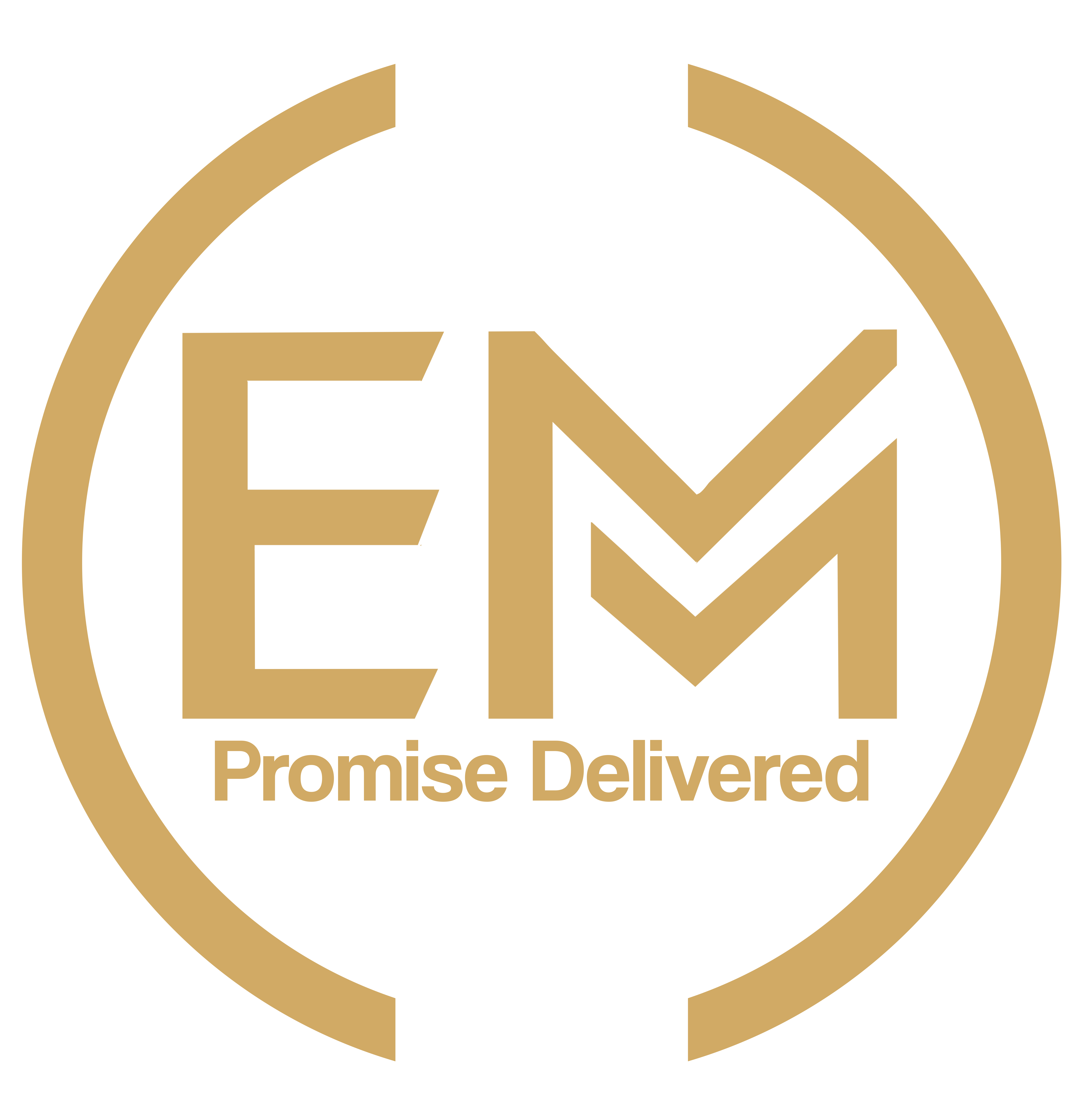Manufacturing ERP Software Solutions For Vendor, Risk & Warehouse Management
What is Manufacturing ERP?
Manufacturing Enterprise management system or Manufacturing ERP is a complete set of software designed to automate manufacturing operations. It combines, monitors, and manages the complex manufacturing processes and data flow across the manufacturing plant. Implementing manufacturing ERP helps in better and improved production and efficient implementation of manufacturing operations. Manufacturing ERP Software gives manufacturers real-time information, flexibility, and knowledge on how to increase the performance of Manufacturing. It connects several manufacturing plants, areas, and manufacturers with live production data and integrates automation equipment with business applications.
The best manufacturing ERP software is a production-oriented program that seamlessly connects to business applications and functions as an ERP standard for the Manufacturing Industry. The result is increased efficiency and control of production processes across the entire enterprise.
Benefits of Manufacturing ERP Software
There are endless benefits of Manufacturing ERP solutions. Some of these are listed below:

Improved Productivity
Automating the business processes will let people to work on extra processes which will increase productivity.

Better Record Keeping
Records and data will be available in one place which means you will be able to make right decisions for future.

Real Time
You can get insights, performance metrics, and results of various operations in real time.

Limits the Risk
Automating operations and getting real time data can help in predictive analyses which results into reduced risk.

Agility
Identify new opportunities without wasting any time. Get ahead of your competitors with real time ERP and agile enterprise.

Simplify the IT Operations
Integrating ERP will simplify the IT operations of the company.

Need help? Then you just need to tell us.
Connect with our experts to get a free consultation
Features of Manufacturing ERP
A manufacturing ERP automates all the manufacturing operations and provides feasibility. The features included in perfect ERP for the manufacturing industry are:
Vendor Management
The Vendor management system is software that lets you manage your business's whole contingent workforce hiring process using a simple and user-friendly solution. As a means for your company to manage and hire contingent workers through hiring agencies, VMS helps manage and procure contingent workers through staffing agencies. VMS simplifies and automates each process involved in hiring, sourcing, and paying temporary workers. A VMS can allow your business to gather requisitions from management and facilitate the on boarding of contingent workers as well as automate transactions, record and collect data from every stage of your hiring process, and also collate statistics such as spend tracking, information about candidates as well as the invoice and payroll data.
Warehouse Management System
Warehouse management software (WMS) is a computer-based solution that gives visibility to the entire warehouse of a company and helps manage the fulfilment of supply chain operations from distribution centres to the store's shelf. Warehouse Management (WMS) solutions can also help companies optimize their space and labour use and investment in equipment by efficiently managing resource use and the flow of materials. In particular, WMS solutions are designed to accommodate the requirements of an entire supply chain that spans the globe, including manufacturing, service, distribution assets, etc. Consumers are looking to shop everywhere, fill anywhere, and return any time in the current omnichannel and multichannel market and fulfilment economy. To meet the demands of consumers, businesses must have the ability to react quickly using the right warehouse management system that can optimize fulfilment capabilities.
Risk Management System
The Risk Management System (RMS) is software used to combine information about risk and aid decision-makers in assessing the risks to their business. The report includes information on the risk of exposure, measures to protect as well as risk control. As with other information systems that are computerized like other systems, RMS System is simple to access from various places and devices. It's flexible and adaptable and able to meet the ever-changing requirements of modern work environments. In addition, it is designed to meet your company's risks and exposures, security measures, and risk control.
Bill of Materials (BOM)
Bill of Materials (BOM) software automatisms and simplifies BOM management processes. Standardizing and streamlining BOM management is essential. BOM software needs to accurately identify and define the elements required for product production at any revision level. Computerized BOM software automates the process of iterative improvement that is associated with BOM management. It reduces the time required for audits, improves product quality, and helps ensure compliance with regulatory requirements.
Inventory Management
An inventory is an asset for the business as it stores the end products in every industry. Therefore, in every sector, whether it's manufacturing or retail, shortage or damage in inventory can be highly detrimental to the business as well as the growth of the organization. That's why businesses need an inventory management system. Companies can easily keep an update of the stocks; manage purchase or produce of the product, etc.
Data and Analytics Solution
There's plenty of crucial information contained in the data generated by your manufacturing and quality systems. Analytics and data solutions help to make use of this information and use it to benefit. It allows you to convert that information from Quality data and Manufacturing Excellence into actionable business intelligence. Analytics and data solutions are easy, effective and can help you make better choices faster.
Finance & Accounting
Financial management software (FMS) refers to the company's software and procedures to control assets, income, and expenditures. An FMS serves various functions, including reducing accounting mistakes, keeping the audit trail, and ensuring compliance with accounting standards.
Quality Management System
A single of the critical elements of manufacturing is quality control. If you're having trouble with audits, parts that aren't in line with the requirements, components out of specification, or lack of transparency of all the steps from start to finish, monitoring your quality management system can aid. It is a Quality Management Software (QMS) that provides a wide array of capabilities and tools needed to tackle quality issues while improving manufacturing and business processes and encouraging cooperation. It's a solution that permits adherence to the strictest quality standards, such as ISO standards, and helps reduce the costs for high-quality.
care features
Types of Manufacturing ERPs
Quality Management System
The quality management system (QMS), as the name suggests, manages the business practices, policies, and procedures required for an organization to design and provide its products or services to its customers and thus increase customers’ satisfaction by ensuring the highest quality of its products. Concluding, QMS can help a company comply with its customers’ regulations and requirements and make continuous improvements to its operation.
Plan and Scheduling Management
Plan and scheduling management refer to managing processes involved in optimizing resources and raw materials in a manufacturing facility. When manufacturing processes are incredibly complex and contain various products competing for identical resources, it is challenging to develop an efficient schedule to maximize the utilization of each resource.
Warehouse Management System
Warehouses are the central point of supply chain and manufacturing operations. They store the entire material utilized or created in those processes starting from raw materials and ending with finished products. The warehouse management system (WMS) is a combination of software and processes that permit organizations to oversee and manage warehouse operations from the moment the materials or goods enter an area of storage until they move out. The objective of WMS is to ensure that materials and goods are moved through warehouses efficiently and cost-effectively.
Material Requirements Planning
Material Requirements Planning (MRP) is a standard supply planning system that helps companies, mainly manufacturers, comprehend inventory needs in balancing demand and supply. Companies use MRP systems that are parts of the supply chain management system to effectively manage inventory plan production and provide the correct product on time and at a reasonable cost.



